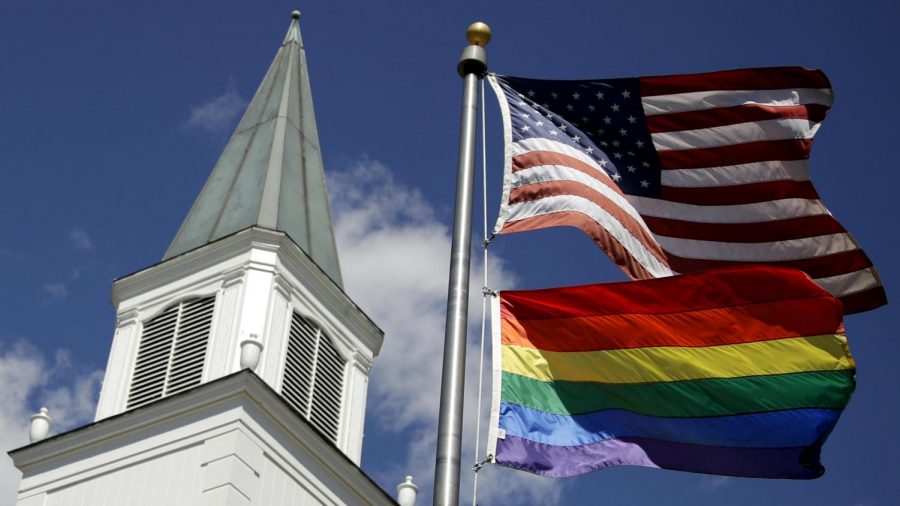The Catholic Church should reconsider its position on same-sex marriage
March 31, 2021
The Vatican has once again remained firm in its refusal to welcome same-sex couples into the Church. The judgement, issued by the Congregation for the Doctrine of the Faith (CDF), which is the Church office responsible for defending Catholic doctrine, rejected the idea that same-sex couples may receive the sacrament of matrimony. The response made a clear distinction between same-sex and opposite-sex couples, saying that “it is necessary that what is blessed be objectively and positively ordered to receive and express grace, according to the designs of God inscribed in creation, and fully revealed by Christ the Lord.” This judgement is a blow to LGBTQ Catholics everywhere, and is a position the Church should reconsider.
Homosexual Catholics are treated unfairly by the Church. They are in a perpetual limbo where they can find no true acceptance; for example, Pope Francis has previously expressed support for same-sex civil unions, calling them children of God, but remains opposed to same-sex marriage within the Catholic Church. This attitude, where gay Catholics are tolerated but not accepted, is harmful for the future of the church.
The awkward middle ground the Church tries to stand on when it comes to gay Catholics is continued in the the report from the CDF. The blessing of same-sex couples are “motivated by a sincere desire to welcome and accompany homosexual persons, to whom are proposed paths of growth in faith.” However, the report continues on, saying that God and the Church love every person, and the Church rejects “unjust discrimination.” Why then, does the Catholic Church refuse to fully recognize the legitimacy of same-sex marriage? Why is love between two consenting adults considered a sin? God “does not and cannot bless sin,” but where is the sin in love? If gay Catholics are “children of God” according to Pope Francis, then they should be treated like any opposite-sex couple who are afforded the sacrament of matrimony.
The Church should look to its past, and how its teachings on certain subjects has evolved; for example, the Church’s teaching on suicide. Prior to the 1980’s, a proper Catholic funeral mass and burial were denied to those that committed suicide. Suicide was scene as a grave sin, as according to the Cathechism God is the “sovereign Master of life. We are obliged to accept life gratefully and preserve it for his honor and the salvation of our souls.” However, in 1992 St. John Paul II recognized the mental strife experienced by those who committed suicide “could diminish the responsibility of the one committing suicide.” The Church took a more compassionate view towards suicide, revising centuries of Catholic teaching that it was nothing more than a grave sin to throw the life God gave away.
If the Church can rethink its view on suicide, why is same-sex marriage such a difficult concept to accept? Being gay is not a choice, and the way one is born should not be grounds for the denial to celebrate love felt between two adults. Two consenting adults, no matter the sex, can live within the idea of what it means to be a good Christian. If the CDF belies that gay Catholics can share in “their journey of Christian faith,” why are certain segments of that journey systemically denied to them? Simply put, the denial of marriage to same-sex couples is wrong. To foster a more welcoming global community, the Catholic Church must move on from its half-acceptance of same-sex couples.



